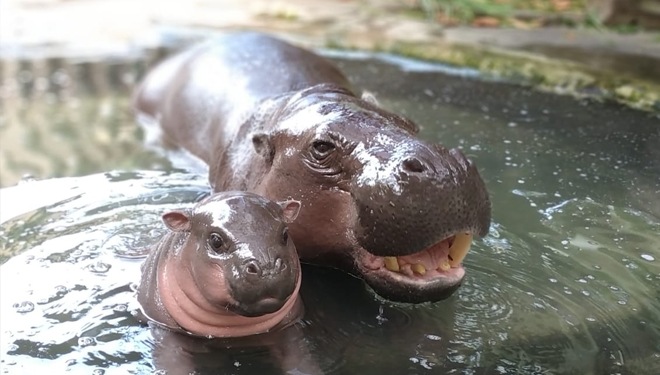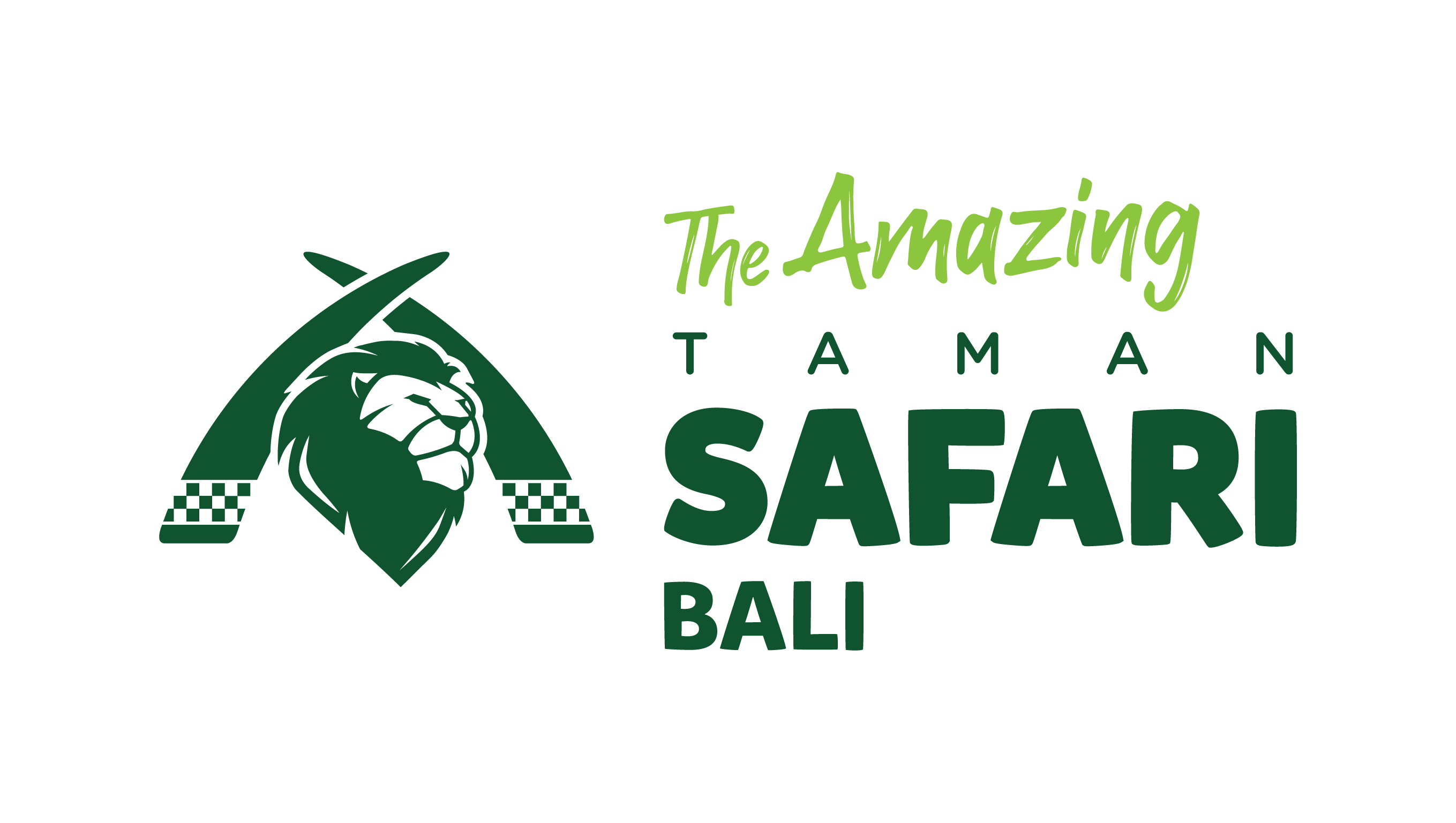
We are incredibly excited to welcome and announce the birth of our male Pygmy Hippo! He was born on Wednesday, July 31st, 2019 at Bali Safari & Marine Park. His proud parents are Fitriani (mother) and Bono (father). Weighing in at about 5 kg at birth, he quickly grew to 15 kg after just a month!
Being our first baby Pygmy Hippo here in Bali Safari & Marine Park, we plan to celebrate this moment with the community by holding a naming competition for our beloved newborn Pygmy Hippo.
The baby itself is currently under the direct care of the mother Pygmy Hippo, and we believe it is best to let nature handle this delicate process. Our team at Bali Safari Park are just monitoring their condition and making a record of their daily routines such as baby suckling, defecation, urination, and other biological activities. Additionally, we’ve also installed CCTV to monitor their activities at night. This will be done until the baby becomes more independent and starts eating solid food. The mother Pygmy Hippo is also under our supervision; we make sure the mother eats well and provides her baby with enough milk.
The Pygmy Hippo (Choeropsis liberiensis), are smaller cousins of the Hippopotamus that are native to West Africa. They are only half as tall as the Hippopotamus and weigh less than ¼ of a full-sized Hippopotamus. Pygmy Hippos are primarily nocturnal, secretive and relatively solitary. They live either individually or in pairs, with males wandering between patches inhabited by solitary females. Unlike many other wild animals, they are not aggressive when they meet, tending to ignore each other instead. However, they can be highly territorial when defending their enclosure. To mark paths through the rainforest, they spread muck while wagging their tails when defecating. The gestation period for Pygmy Hippos is about 190 – 210 days (6 – 7 months).
In the wild, they remain with the mother until weaning, hiding near the water as the mother leaves to forage food. Weaning occurs between 6 – 8 months old, they get mature about 5 years old, accurate lifespan is not known, but it is believed that they live between 30 – 50 years old. Pygmy Hippos are classified as herbivore animals, that can eat up to 20 – 25 kg per day and loves to eat grass, carrots, and fruits. Their natural habitats are in forested areas, spending most of their time in swamps and near streams and rivers to keep their skin wet.
Pygmy Hippos are classified as Endangered IUCN Red List of Threatened Species. It is estimated that there are around 2,000 Pygmy Hippos left in the wild, with numbers declining as their habitat is destroyed and they continue to be hunted for bushmeat. The main threats faced by Pygmy Hippos are habitat loss and fragmentation, as forests have been used for logging, farming, plantations and building settlements. They also face threats from hunting for their meat.
Pygmy hippos are protected by law in all the countries they are present in and also listed in Appendix II of the Convention on International Trade in Endangered Species, which means that trade in any parts of the animal is restricted. Most Pygmy Hippos live in protected areas, and all the countries in which they live have developed strategies that should help protect the hippos.
We’ll be sharing the progress and growth of our beloved baby Pygmy Hippo on our social media channels, so stay tuned and make sure to follow us on Instagram and Facebook!






